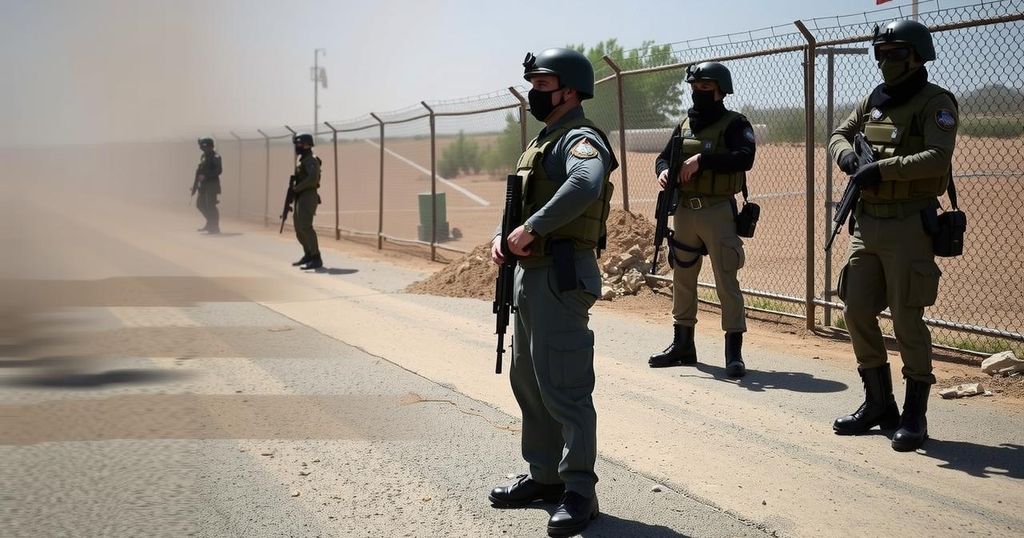Syrian Rebels Make Gains as Neighbors Heighten Security Measures

Rebels in Syria have made significant gains, moving closer to Homs and Damascus, triggering border closures in Lebanon and Jordan while Israel enhances its military presence in the Golan Heights. The rebel coalition poses a serious threat to President Assad’s rule, as the Kurdish forces also consolidate power in Deir al-Zour. Diplomatic efforts for peace remain stalled amid the chaos.
The situation in Syria escalated as a coalition of rebels made significant territorial advances, particularly towards Homs, and closing in on the capital, Damascus. This development raised alarms in neighboring countries, leading Lebanon and Jordan to shut down border crossings while Israel increased its military presence in the Golan Heights. As President Bashar al-Assad’s regime continues to lose control, a separate Kurdish-led force, supported by the United States, has gained ground in the previously government-held city of Deir al-Zour. This shift in power dynamics represents one of the most significant threats to al-Assad’s rule in recent years. Despite the continued violence, diplomatic efforts to reach a resolution in the Syrian civil war remain stagnant, overshadowed by conflicts in other regions such as Gaza and Lebanon. Leading the charge is Hayat Tahrir al-Sham, a group that emerged from the previous Al Qaeda affiliation but has since sought to establish legitimacy despite being designated as a terrorist organization by prominent international bodies.
The Syrian civil war, ongoing since 2011, has seen a complex interplay of different groups vying for power, leading to a prolonged stalemate. Amidst a backdrop of international neglect, the recent rapid advances of rebel factions signify a pivotal moment in the conflict, indicating a potential shift in power that could have far-reaching implications for the region. The rebel coalition, particularly Hayat Tahrir al-Sham, poses a renewed challenge to the Assad regime, which has struggled to maintain control in the face of growing opposition. The involvement of foreign powers, such as Kurdish forces and the United States, further complicates the situation.
In summary, the escalating advances of Syrian rebel groups towards key urban centers have prompted heightened concerns among neighboring countries and indicate a significant challenge to President Bashar al-Assad’s authority. The closure of borders by Lebanon and Jordan, coupled with increased military activity from Israel, underscores the regional implications of the conflict. With ongoing territorial gains from various factions, the prospects for a sustainable political resolution remain uncertain, echoing the complexities of the Syrian civil war.
Original Source: www.nytimes.com







